Science & Society
Sign up for our newsletter
We summarize the week's scientific breakthroughs every Thursday.
-
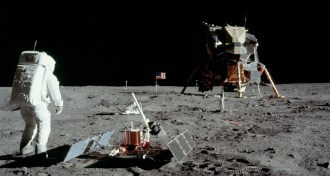 Planetary Science
Planetary ScienceBefore moon landings, scientists thought dust or crust might disrupt touchdown
Moon dust didn’t swallow spacecraft as was suggested in the 1960s. Successful exploration since that has changed our view of the moon.
-
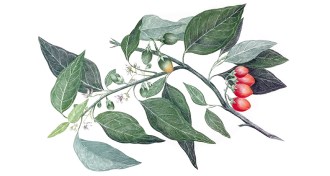 Science & Society
Science & SocietyExpedition’s plants illustrated, build your own robot, and more
Three museum exhibits allow visitors to explore 18th century botanical art, natural disasters and robots.
-
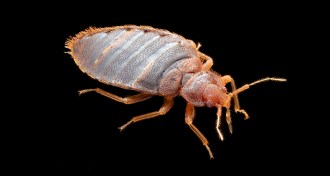 Animals
AnimalsTales of the bedbug, one of the world’s most reviled insects
‘Infested’ captivates with stories about the bloodsucking insects. Resurgent in many areas in the United States, bedbugs are the fastest-growing moneymaker in pest control.
By Sid Perkins -
 Science & Society
Science & SocietyUnbiased computer confirms media bias
A computer algorithm can identify a media outlet’s bias just by the quotes it chooses from political speeches, surrounding context aside.
-
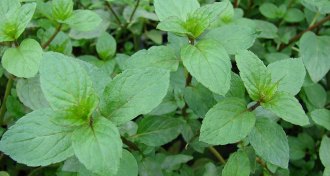 Plants
PlantsPlants suck in nicotine from nearby smokers
Peppermint plants can build up nicotine from tobacco dropped on their soil or smoked indoors.
By Susan Milius -
 Science & Society
Science & SocietyThe Angelina effect should be about knowing your cancer risk
Angelina Jolie’s public message about her medical decisions related to cancer is about knowing your risks for disease, not hers.
-
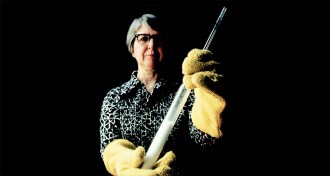 Science & Society
Science & SocietyTop 10 science anniversaries of 2015
From genes and dreams to gravity and Kevlar, 2015 offers plenty to celebrate.
-
 Animals
AnimalsDealing with droughts, museums going digital and more reader feedback
Readers share their experiences with dry weather in the U.S., discuss how humans mentally sort quantities and more.
-
 Science & Society
Science & SocietyOne anniversary to celebrate, one to contemplate
In this issue, both feature articles focus on anniversaries, though of two very different kinds.
By Eva Emerson -
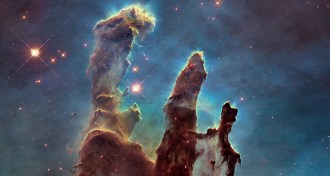 Astronomy
AstronomyThe art of astronomy
Astronomer Zoltan Levay uses the Hubble Space Telescope to create stunning images of cosmic landscapes.
-
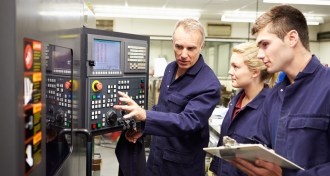 Science & Society
Science & SocietyWomen in engineering engage best with gender parity
There are many hypotheses as to why women don’t stay in science or engineering. A new study puts an intervention to the test.
-
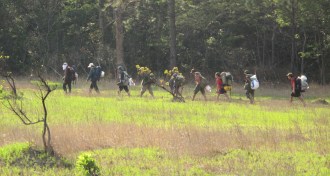 Animals
Animals‘The Last Unicorn’ takes readers on quest to see a saola
Nature writer William deBuys introduces readers to the enigmatic saola of Southeast Asia.